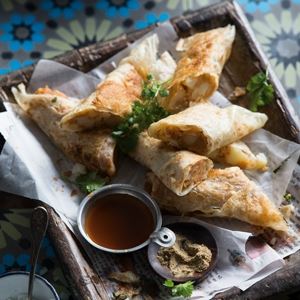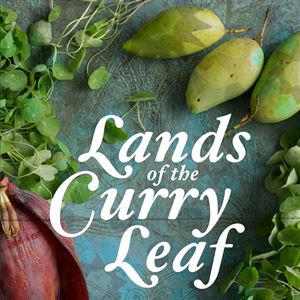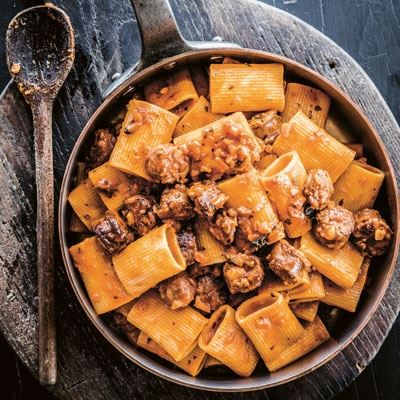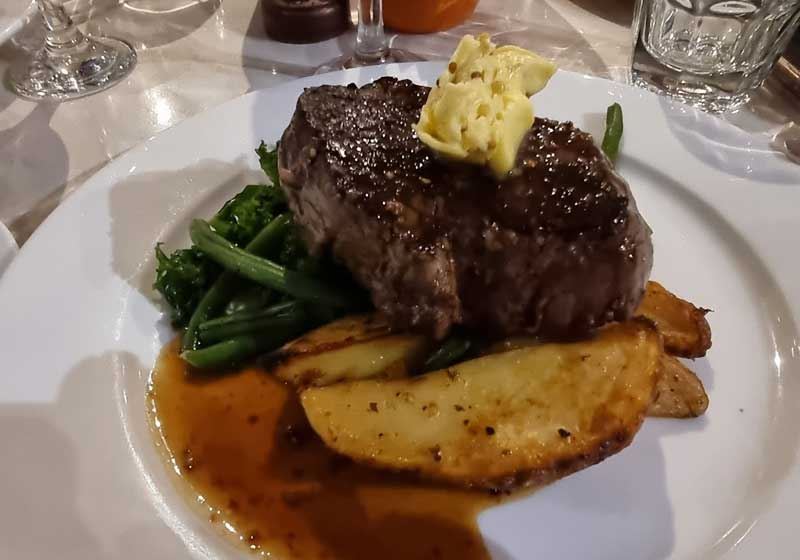Mumbai Frankie - Chef Recipe by Peter Kuruvita

Ingredients
"Originally a simple man's food to help get through the day, this quick and filling dish hails from Mumbai, as the name would suggest. It is an amazing snack for those on the run — spicy, tasty and so easy to make. The amchur adds a lovely sourness to this beautifully flavoursome, energy-dense vegetarian dish. If you don't have time to make your own roti, this dish also works really well with frozen roti parathas, from the freezer section of Asian grocery stores." ~ Peter Kuruvita
4 cooked roti, preferably roti canai
Melted butter or ghee, for brushing
1 large onion, finely chopped
1 tsp frankie masala (a spice mix readily available in spice shops), or Chaat masala*
Masala Water:
80 mL water
1 1/2 tsp amchur (dried mango powder)
1/2 tsp chilli powder
1/4 tsp Garam masala*
A pinch of salt
Stuffing:
1 1/2 Tbs rice bran oil or butter
1 tsp ginger garlic paste*
400 g mashed potato
3/4 tsp chilli powder
1 tsp Garam masala
1/2 tsp Chaat masala (optional)
1 Tbs finely chopped coriander (cilantro)
A generous pinch of salt, to taste
*Garam Masala (makes 100 g):
"Literally meaning ‘warm spice', garam masala is an Indian staple. The exact blend of spices varies between households and regions, though it typically includes cinnamon, cardamom, cloves, cumin, coriander, nutmeg and black peppercorns. It adds warmth and depth of flavour, rather than heat." ~ Peter Kuruvita.
2 cinnamon sticks (not cassia!)
10 green cardamom pods
8 black cardamom pods
15 cloves
1 Tbs cumin seeds
1 Tbs coriander seeds
1 Tbs black peppercorns
1/2 tsp freshly grated nutmeg
2 dried red Kashmiri chillies
*Chaat Masala (makes 100 g):
"A unique blend of spicy, salty and tart, this is the spice mix that lends instant zing to many Indian snacks and street foods, and is often added just before serving. I got sick of just about everything having this flavour, due to the asafoetida and black salt. The latter is quite sulfurous; the asafoetida needs to be used sparingly. While you will find slight variations all over India, Pakistan, Nepal and Bangladesh, this recipe has the tang and flavour that I like in small amounts." ~ Peter Kuruvita.
3 Tbs cumin seeds
1 Tbs coriander seeds
1 1/2 tsp fennel seeds
4 Tbs amchur (dried mango powder)
3 Tbs powdered black salt
1 1/2 tsp freshly ground black pepper
1/4 tsp asafoetida
1 1/2 tsp ground ginger
1 tsp dried powdered mint
1 1/2 tsp ajwain seeds
1 tsp citric acid, optional
*Ginger Garlic Paste:
"Fresh ginger and garlic are indispensable to many dishes across the subcontinent; keep a jar of this paste in the fridge, as you'll find so many brilliant uses for it. The key is to use equal amounts of ginger and garlic. You can also add green chillies, or use vinegar or lime juice instead of lemon juice, to help preserve the paste." ~ Peter Kuruvita.
100 g (31/2 oz) young fresh ginger
100 g (31/2 oz) garlic cloves
1 tsp salt
1 Tbs mustard oil
1 Tbs lemon juice
Method
Garam Masala:
Place a dry heavy-based frying pan over medium–high heat until fully heated and slightly smoking.
Add all the ingredients and shake and stir for about a minute, or until the spices smell toasted, are slightly darker, and give off just a slight bit of smoke. Tip into a bowl and leave to cool.
Grind to a fine powder, using a spice grinder or mortar and pestle, and store in an airtight container.
Chaat Masala:
In a dry heavy-based frying pan, toast the cumin, coriander and fennel seeds over low heat for about 3–5 minutes, stirring often, until dark brown. Remove from the pan and leave to cool.
Using a spice grinder or mortar and pestle, grind all the ingredients into a fine powder. Store in an airtight container.
Ginger Garlic Paste:
Thinly peel the ginger, and peel all the garlic cloves.
Finely grate or chop the ginger, then grind to a paste with the garlic cloves, using a spice grinder or mortar and pestle. Mix in the salt, mustard oil and lemon juice until well combined.
The paste will keep in a sterilised container in the fridge for 8–10 days, or indefinitely in the freezer.
VARIATIONS:
Ginger paste: Thinly peel 100 g young fresh ginger, then finely grate or chop it. Grind to a paste using a spice grinder or mortar and pestle, then mix in 1/2 teaspoon salt, 2 teaspoons mustard oil and 2 teaspoons lemon juice.
Garlic paste: Peel 100 g garlic cloves and grind to a paste, then mix in 1/2 teaspoon of salt, 2 teaspoons mustard oil and 2 teaspoons lemon juice.
Mumbai Frankie:
For the masala water, bring the water to the boil in a small saucepan, then remove from the heat. Stir in the remaining ingredients until well combined and allow to cool.
For the stuffing, heat the rice bran oil or butter in a heavy-based frying pan over medium heat and cook the ginger garlic paste for a few seconds. Add the mashed potato, ground spices, coriander and salt, mixing well. Stir for another minute, or until all the ingredients are combined well and the spices evenly mixed through. Set aside.
Heat a flat round grill (such as a tawa) or barbeque hotplate to medium.
Place a roti on the grill. Spread one-quarter of the stuffing around the middle of the roti and carefully roll it up. Brush the roti with melted butter or ghee and gently grill for a minute or two until golden underneath, then carefully flip it over and cook on the other side until the roti is golden and the filling is warmed through. Take care not to cook it too much, or the roti will become too crispy.
Remove from the grill and unroll the roti, filling side up. Top with a quarter of the chopped onion, then sprinkle evenly with 1/4 teaspoon of the frankie masala and about 1 1/2 teaspoons of masala water, before rolling it up tightly in foil or baking paper.
Repeat with the remaining ingredients to make three more frankies. Serve immediately, cut in half if desired.

Credits: Images and recipes from Lands of the Curry Leaf by Peter Kuruvita, Murdoch Books, RRP $49.99 Photography by Alan Benson.








